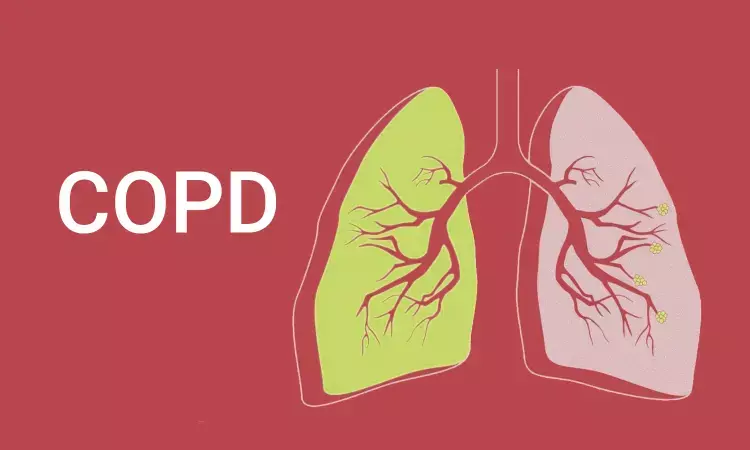- Home
- Medical news & Guidelines
- Anesthesiology
- Cardiology and CTVS
- Critical Care
- Dentistry
- Dermatology
- Diabetes and Endocrinology
- ENT
- Gastroenterology
- Medicine
- Nephrology
- Neurology
- Obstretics-Gynaecology
- Oncology
- Ophthalmology
- Orthopaedics
- Pediatrics-Neonatology
- Psychiatry
- Pulmonology
- Radiology
- Surgery
- Urology
- Laboratory Medicine
- Diet
- Nursing
- Paramedical
- Physiotherapy
- Health news
- Fact Check
- Bone Health Fact Check
- Brain Health Fact Check
- Cancer Related Fact Check
- Child Care Fact Check
- Dental and oral health fact check
- Diabetes and metabolic health fact check
- Diet and Nutrition Fact Check
- Eye and ENT Care Fact Check
- Fitness fact check
- Gut health fact check
- Heart health fact check
- Kidney health fact check
- Medical education fact check
- Men's health fact check
- Respiratory fact check
- Skin and hair care fact check
- Vaccine and Immunization fact check
- Women's health fact check
- AYUSH
- State News
- Andaman and Nicobar Islands
- Andhra Pradesh
- Arunachal Pradesh
- Assam
- Bihar
- Chandigarh
- Chattisgarh
- Dadra and Nagar Haveli
- Daman and Diu
- Delhi
- Goa
- Gujarat
- Haryana
- Himachal Pradesh
- Jammu & Kashmir
- Jharkhand
- Karnataka
- Kerala
- Ladakh
- Lakshadweep
- Madhya Pradesh
- Maharashtra
- Manipur
- Meghalaya
- Mizoram
- Nagaland
- Odisha
- Puducherry
- Punjab
- Rajasthan
- Sikkim
- Tamil Nadu
- Telangana
- Tripura
- Uttar Pradesh
- Uttrakhand
- West Bengal
- Medical Education
- Industry
Non-invasive ventilation in chronic stable Hypercapnic COPD: ATS guidelines

A subcommittee of the American Thoracic Society Assembly in Sleep and Respiratory Neurobiology has released new clinical practice guidelines to help advise clinicians on the optimal management of patients with chronic obstructive pulmonary disease (COPD) and chronic hypercapnia.
Hypercapnia is the buildup of carbon dioxide in the bloodstream. The guidelines, published online in the American Thoracic Society's American Journal of Respiratory and Critical Care Medicine, is titled "Long-Term Non-Invasive Ventilation in Chronic Stable Hypercapnic Chronic Obstructive Pulmonary Disease: An Official American Thoracic Society Guideline."
The committee, comprised of leading clinicians working in pulmonary and critical care medicine, as well as patient representatives, developed a consensus approach and summarized evidence for addressing five PICO (patients, intervention, comparator, outcome) questions related to non-invasive ventilation (NIV) for chronic hypercapnic COPD. Recommendations were formulated by the panel of pulmonary and sleep physicians, respiratory therapists and methodologists using the Evidence-to-Decision framework, a systematic and transparent approach to groups making well-informed health care recommendations.
While on-invasive ventilation is used for patients with COPD and chronic hypercapnia, up to this point, evidence for clinical efficacy and optimal management of therapy have been limited.
"This guideline is needed because patients with severe COPD are very sick and have few therapies that have been shown to improve outcomes," said guideline Chair Robert L. Owens, MD, associate professor, Division of Pulmonary, Critical Care and Sleep Medicine, University of California, San Diego. "Clinicians who care for these patients need information about whether to consider non-invasive ventilation and some practical advice on how to set up patients with NIV."
The group's main recommendations are to:
- use nocturnal NIV in addition to usual care of patients with chronic stable hypercapnic COPD;
- have patients with chronic stable hypercapnic COPD undergo screening for obstructive sleep apnea (OSA) before initiation of long-term NIV;
- avoid initiating long-term NIV during admission for acute-on-chronic hypercapnic respiratory failure, favoring instead reassessment for NIV at 2-4 weeks after resolution;
- avoid the use of in-laboratory overnight polysomnography (PSG) to titrate NIV in patients with chronic stable hypercapnic COPD who are initiating NIV, and
- use NIV with targeted normalization of PaCO2 in hypercapnic COPD patients on long-term NIV.
To develop each of the recommendations, the panel reviewed results from numerous randomized clinical trials, and looked at such factors as health equity and availability of pulmonary and critical care specialists in medically underserved areas, as well as the likelihood of patient compliance. Because some or all of these issues may impact each of the recommendations, all recommendations were considered conditional. The group outlined unanswered questions for each recommendation, as well as future research directions. They also examined what other specialty organizations were saying on these issues.
"It is exciting to consider on-invasive ventilation as additional therapy for those with hypercapnic COPD," the authors stated. "However, there are many issues to consider."
Among these issues are: appropriate patient selection; implementation barriers; the need for more data to guide the goals of therapy, especially on how clinicians should target PaCO2; addressing regulatory/payor considerations on the ability to obtain home NIV for COPD, and the potential for worsening health care disparities due to the cost and expertise needed to provide NIV for patients with stable hypercapnic COPD.
Dr. Owens concluded, "This guideline is needed now because studies in the last few years have shown improved outcomes with non-invasive ventilation for patients with severe COPD. The guideline incorporates recent studies, while also highlighting priority areas for research."
Hina Zahid Joined Medical Dialogue in 2017 with a passion to work as a Reporter. She coordinates with various national and international journals and association and covers all the stories related to Medical guidelines, Medical Journals, rare medical surgeries as well as all the updates in the medical field. Email: editorial@medicaldialogues.in. Contact no. 011-43720751
Dr Kamal Kant Kohli-MBBS, DTCD- a chest specialist with more than 30 years of practice and a flair for writing clinical articles, Dr Kamal Kant Kohli joined Medical Dialogues as a Chief Editor of Medical News. Besides writing articles, as an editor, he proofreads and verifies all the medical content published on Medical Dialogues including those coming from journals, studies,medical conferences,guidelines etc. Email: drkohli@medicaldialogues.in. Contact no. 011-43720751


